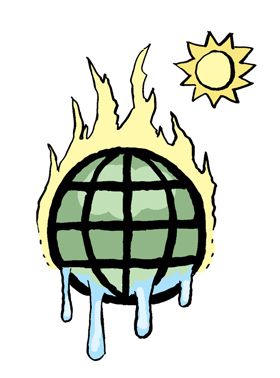Time to act on findings of latest IPCC Report

The Sixth Assessment Report of the Intergovernmental Panel on Climate Change‘Climate Change 2021: the Physical Science Basis’ paints an ominous picture. Scientists are observing changes (unprecedented in thousands, if not hundreds of thousands of years) in the Earth’s climate in every region and across the whole climate system. Some of the changes already set in motion—such as continued sea level rise—are irreversible over hundreds to thousands of years. Unless there are immediate, rapid and large-scale reductions in greenhouse gas emissions, limiting warming to close to 1.5°C or even 2°C will be beyond reach. Immediate, strong, and sustained reductions in emissions of (CO2) and other greenhouse gases are required to limit climate change. This would provide initial benefits benefits for air quality quickly, it could take 20-30 years to see global temperatures stabilise due to a lack of progress in reducing human-caused greenhouse gas emissions.
Main findings:
- The report shows that emissions of greenhouse gases from human activities are responsible for approximately 1.1°C of warming since 1850-1900, and finds that averaged over the next 20 years, global temperature is expected to reach or exceed 1.5°C of warming.
- The report projects that in the coming decades climate changes will increase in all regions. For 1.5°C of global warming, there will be increasing heat waves, longer warm seasons and shorter cold seasons.
- At 2°C of global warming, heat extremes would more often reach critical tolerance thresholds for agriculture and health, the report shows.
- Climate change is bringing multiple different changes in different regions – which will all increase with further warming. These include changes to wetness and dryness, to winds, snow and ice, coastal areas and oceans. For example, climate change is intensifying the water cycle brining more intense rainfall and associated flooding, as well as more intense drought in many regions. It is also affecting rainfall patterns and changes to monsoon precipitation are expected, which will vary by region.
- Coastal areas will see continued sea level rise throughout the 21st century, contributing to more frequent and severe coastal flooding in low-lying areas and coastal erosion. Extreme sea level events that previously occurred once in 100 years could happen every year by the end of this century.
- Further warming will amplify permafrost thawing, and the loss of seasonal snow cover, melting of glaciers and ice sheets, and loss of summer Arctic sea ice.
- Changes to the ocean, including warming, more frequent marine heatwaves, ocean acidification, and reduced oxygen levels will continue throughout at least the rest of this century.
- For cities, some aspects of climate change may be amplified, including heat (since urban areas are usually warmer than their surroundings), flooding from heavy precipitation events and sea level rise in coastal cities.
It has been clear for decades that the Earth’s climate is changing, and the role of human influence on the climate system is undisputed. The new report also reflects major advances in the science of attribution – understanding the role of climate change in intensifying specific weather and climate events such as extreme heat waves and heavy rainfall events. A report from scientists at the World Weather Attribution finds that extreme weather events have been made up to nine times more likely by global warming due to human activity.
The report also shows that human actions still have the potential to determine the future course of climate. The evidence is clear that carbon dioxide (CO2) is the main driver of climate change, even as other greenhouse gases and air pollutants also affect the climate. Stabilising the climate will require strong, rapid, and sustained reductions in greenhouse gas emissions, and reaching net zero CO2 emissions. Limiting other greenhouse gases and air pollutants, especially methane, could have benefits both for health and the climate.
As Government draws up the Climate Action Plan, there are some immediate policies that must be implemented if Ireland is to meet its national and international climate targets:
- Set ambitious emissions reduction targets for 2030 and ensure sufficient resources to support implementation of these targets;
- Review and phase out tax expenditures that support environmentally damaging activity;
- Adopt targets and a reporting system for each of the Sustainable Development Goals;
- Integrate a Sustainable Development Framework into economic policy;
- Introduce a strategy for Ireland that includes the principles of the circular economy and cradle-to-cradle development;
- Introduce shadow national accounts, and assign value to natural capital and ecosystems in our national accounting systems;
- Develop a comprehensive mitigation and transition programme to support communities and people in the transition to a low carbon society;
- Develop a progressive and equitable environmental taxation system;
- Develop a new National Index of Progress encompassing environmental and social indicators of progress as well as economic ones;
- Develop a Just Transition Dialogue structure at regional and national level.